| Download |
|
|
2:00pm ET
Location: Online
The Autism CARES Network met in 2018 through a series of virtual activities exploring the topic of ableism. This was an opportunity for MCHB-funded CARES legislation grantees (representing research, training, and state systems change stakeholders) to share information about activities within their respective networks, discuss emerging trends, and facilitate meaningful collaboration to address this challenging issue. These activities are hosted annually by ITAC, in collaboration with SPHARC and HRSA-MCHB.
Theme
Autism in the Context of Ableism: Culture, Identity, and Quality of Life
What is Ableism?
Ableism is the systematic discrimination against people with disabilities. It may be reflected through overt actions or through structures, unconscious prejudices or inaccessible systems that prevent the full involvement, inclusion and agency of people with disabilities. In the context of autism, ableism often takes the form of excluding Autistic people from positions of leadership, responsibility and decision-making in autism service-provision, research and policy contexts.
Event Materials
A reflection guide has been developed as a companion to the webinar series. It is designed for participants' personal use, to enhance learning through independent contemplation and action planning - before, during, and after each activity.
Download a pdf version of the reflection guide here or a word version here.
Agenda
Activity #1 - Keynote Presentation - Wednesday, September 5, 2018 - 2:00-3:00 p.m. ET
A one-hour framing keynote by an autistic leader that defines and begins to unpack the ways that ableism impacts the autistic community
Keynote Presenter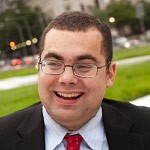 Ari Ne'eman is the co-founder of the Autistic Self Advocacy Network and served as its President from 2006 to 2016. He currently serves as Chief Executive Officer of MySupport.com, an online platform designed to empower seniors and people with disabilities to self-direct their own services. He is currently writing a book on the history of disability in the United States from the Civil War to the present and serves as a disability policy advisor to the American Civil Liberties Union. Ari served as one of President Obama's appointees to the National Council on Disability from 2010 to 2015, where he managed the Council's policy work on Medicaid, Social Security and the Affordable Care Act. He has previously served on the HHS Inter-Agency Autism Coordinating Committee, the Department of Labor's Advisory Committee on Increasing Competitive, Integrated Employment of People with Disabilities, the National Quality Forum's Workgroup on Measuring Home and Community Based Services Quality and as an adviser to the DSM-5 Neurodevelopmental Disorders Workgroup convened by the American Psychiatric Association.
Ari Ne'eman is the co-founder of the Autistic Self Advocacy Network and served as its President from 2006 to 2016. He currently serves as Chief Executive Officer of MySupport.com, an online platform designed to empower seniors and people with disabilities to self-direct their own services. He is currently writing a book on the history of disability in the United States from the Civil War to the present and serves as a disability policy advisor to the American Civil Liberties Union. Ari served as one of President Obama's appointees to the National Council on Disability from 2010 to 2015, where he managed the Council's policy work on Medicaid, Social Security and the Affordable Care Act. He has previously served on the HHS Inter-Agency Autism Coordinating Committee, the Department of Labor's Advisory Committee on Increasing Competitive, Integrated Employment of People with Disabilities, the National Quality Forum's Workgroup on Measuring Home and Community Based Services Quality and as an adviser to the DSM-5 Neurodevelopmental Disorders Workgroup convened by the American Psychiatric Association.
Ableism is the systematic discrimination against people with disabilities. It may be reflected through overt actions or through structures, unconscious prejudices or inaccessible systems that prevent the full involvement, inclusion and agency of people with disabilities. In the context of autism, ableism often takes the form of excluding Autistic people from positions of leadership, responsibility and decision-making in autism service-provision, research and policy contexts. This session, delivered by ASAN co-founder Ari Ne'eman, will discuss the history of autism research, service-provision and policy, highlighting ways in which ableism has played a role in limiting opportunities for Autistic people to be fully included in decisions about our own lives. The session will introduce Autism CARES grantees to basic concepts in neurodiversity, participatory research and service-provision models, the social and medical models of autism, and ways in which Autism CARES grantees can work to be a part of the solution by building welcoming environments for autistic trainees and faculty.
Download the powerpoint for the keynote here.
Survey Reminder: Please complete the event survey here if you watched the interactive webinar live or if you watch it asynchronously online https://www.surveymonkey.com/r/CARES2018Activity1
Activity #2 - Spotlight on Promising Practices - Friday, October 5, 2018 - 2:00-3:30 p.m. ET
Presentations showcasing a diverse range of authentically inclusive and engaging practices being implemented by grantees.
From the Washington State Implementation Grant:
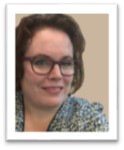 Michelle Hoffman has a bachelor's in Sociology and a Master's Degree in Long Term Care Program Management. She is the Washington State Department of Health representative to the Developmental Disabilities Council. She has been in her position as Family Engagement Coordinator for 3 years, and prior to that she was a case manager with the state Developmental Disabilities agency for 8 years. She is currently acting in an interim position as program supervisor of the Children and Youth with Special HealthCare Needs program. She also has 3 adult children, one of whom is diagnosed on the Autism spectrum. She has worked in the field of disability for 25 years.
Michelle Hoffman has a bachelor's in Sociology and a Master's Degree in Long Term Care Program Management. She is the Washington State Department of Health representative to the Developmental Disabilities Council. She has been in her position as Family Engagement Coordinator for 3 years, and prior to that she was a case manager with the state Developmental Disabilities agency for 8 years. She is currently acting in an interim position as program supervisor of the Children and Youth with Special HealthCare Needs program. She also has 3 adult children, one of whom is diagnosed on the Autism spectrum. She has worked in the field of disability for 25 years.
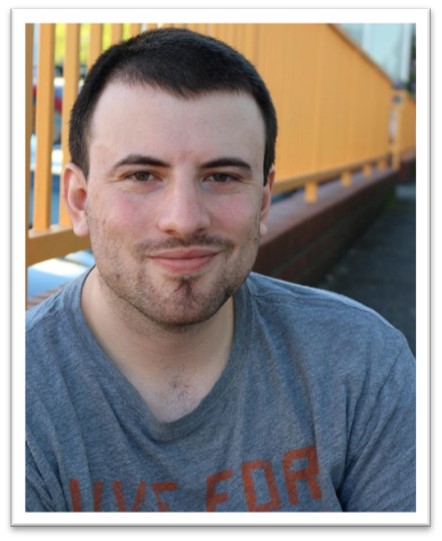 Zack Siddeek is a Social Worker practicing in Seattle, Washington. He is Autistic and is passionate about finding solutions to address the Autistic community's 80% unemployment rate, as well as creating services to address the lack of services that contribute to the high suicide rate. He is the community organizer of Square Pegs Autistic Meetup group of Washington and is on the Board of Directors of Washington Institute for Supportive Employment.
Zack Siddeek is a Social Worker practicing in Seattle, Washington. He is Autistic and is passionate about finding solutions to address the Autistic community's 80% unemployment rate, as well as creating services to address the lack of services that contribute to the high suicide rate. He is the community organizer of Square Pegs Autistic Meetup group of Washington and is on the Board of Directors of Washington Institute for Supportive Employment.
Addressing Ableism in the design of programs serving Autistic Adults and families of children with autism
This presentation will describe how the Washington state implementation grant identified and addressed issues of ableism at the systems level. Specifically, after involving autistic adults in their collaboration the leadership began discussiong new goals, new strategies, and new frames for their work. Zack and Michelle will share about a series of Intergroup Dialogue Sessions that were funded with their ASD grant in order to address some of the tension of these new partnerships between parents, systems partners and self-advocates when it comes to differing perspectives, the balancing of research and evidence base with inclusion of lived experiences, and the acknowledgement of the biases that people bring to these types of collaborations.
From DBPNet:
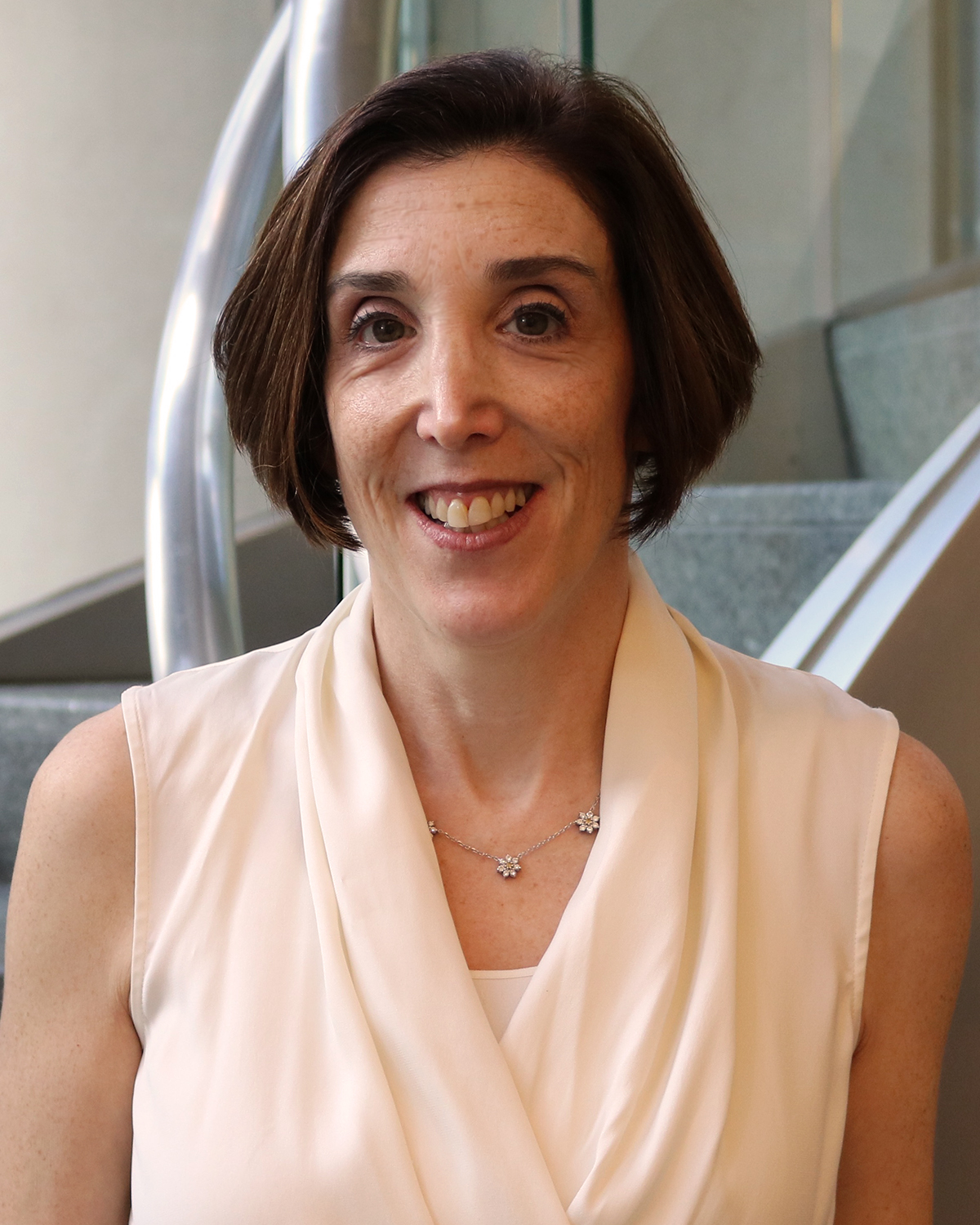
Amy Kratchman has been working with clinicians and researchers since 2008 as a family representative. She is the mother of a three children with special healthcare needs. As a Family Consultant at The Children's Hospital of Philadelphia (CHOP), Amy co-leads numerous Family Centered Care initiatives. She collaborates with senior hospital leaders and staff to ensure that the institution's operating plan and programmatic goals are responsive to the needs of children and families. Amy co-leads Family Partners, an innovative program developed and implemented at CHOP, to maximize the meaningful engagement of families in all aspects of the pediatric healthcare delivery system. Engaging parents and youth in research is a major focus of this work.
Patient Engagement in Research
This presentation will describe how to meaningfully engage people with ASD and other neurodevelopmental disabilities and their caregivers in all stages of research. When we think of traditional research, patients and caregivers have only been involved as participants in a study. We will explore methods to engage and partner with people with ASD and other neurodevelopmental disabilities at all steps in the research process so research can address questions and outcomes that are important to them.
From the Georgia LEND:

Kurt Vogel is a graduate of the 2016-2017 GA LEND program in the discipline of Individual Advocacy. He is a fourth year student in Georgia Tech's Excel Program and an employee for the Center for Leadership in Disability at Georgia State University. He was an American Association of People with Disabilities Summer Intern at the US Access Board's IT Department in 2018 and a Member of GaLEND's UDL Workgroup during the project implementation in 2016 and 2017.
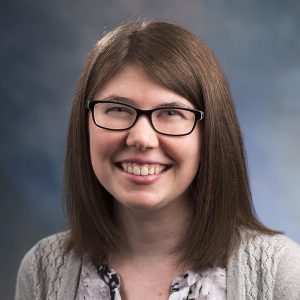 Molly Tucker is a Community Services Specialist at the Center for Leadership in Disability. Previously, she has worked as a public school teacher at a Title 1 school in Macon, Ga., and as an Undergraduate Admission Counselor at Georgia Tech. While earning her Master of Social Work degree, she was a trainee within the 2016/2017 cohort of the Georgia Leadership Education in Neurodevelopmental Disabilities leadership training program, which is housed within the Center for Leadership in Disability.
Molly Tucker is a Community Services Specialist at the Center for Leadership in Disability. Previously, she has worked as a public school teacher at a Title 1 school in Macon, Ga., and as an Undergraduate Admission Counselor at Georgia Tech. While earning her Master of Social Work degree, she was a trainee within the 2016/2017 cohort of the Georgia Leadership Education in Neurodevelopmental Disabilities leadership training program, which is housed within the Center for Leadership in Disability.
This presentation was also supported by Mark Crenshaw, MTS and Elizabeth Labbe-Webb, MBA.
This presentation will discuss the GA LENDs initiative to work with a Universal Design for Learning (UDL) consultant to develop a program curriculum that is accessible to all learners and that increases the inclusiveness of accommodations which may be provided to support trainees with additional needs, including those with intellectual or developmental disabilities.
Activity #3 - Discussion Groups and Wrap Up - Monday, October 29, 2018 - 2:00-3:30 p.m. ET
An opportunity to process what attendees have learned and discuss how it applies to CARES funded work.
>>> Download the Webinar #3 Discussion notes to complete the archive.
These virtual activities are only open to individuals representing the network of MCHB-funded Autism CARES training, research, and state implementation grantees, their Federal officers, and TA providers. While these events have been developed to function as a series and build on one another, you may choose to view as many or few of the event archives as you choose
All of these interactive webinars have been recorded and made available to grantees for asynchronous viewing for those who were unable to participate in the live event.
For more information, please contact Sarah DeMaio at AUCD.


